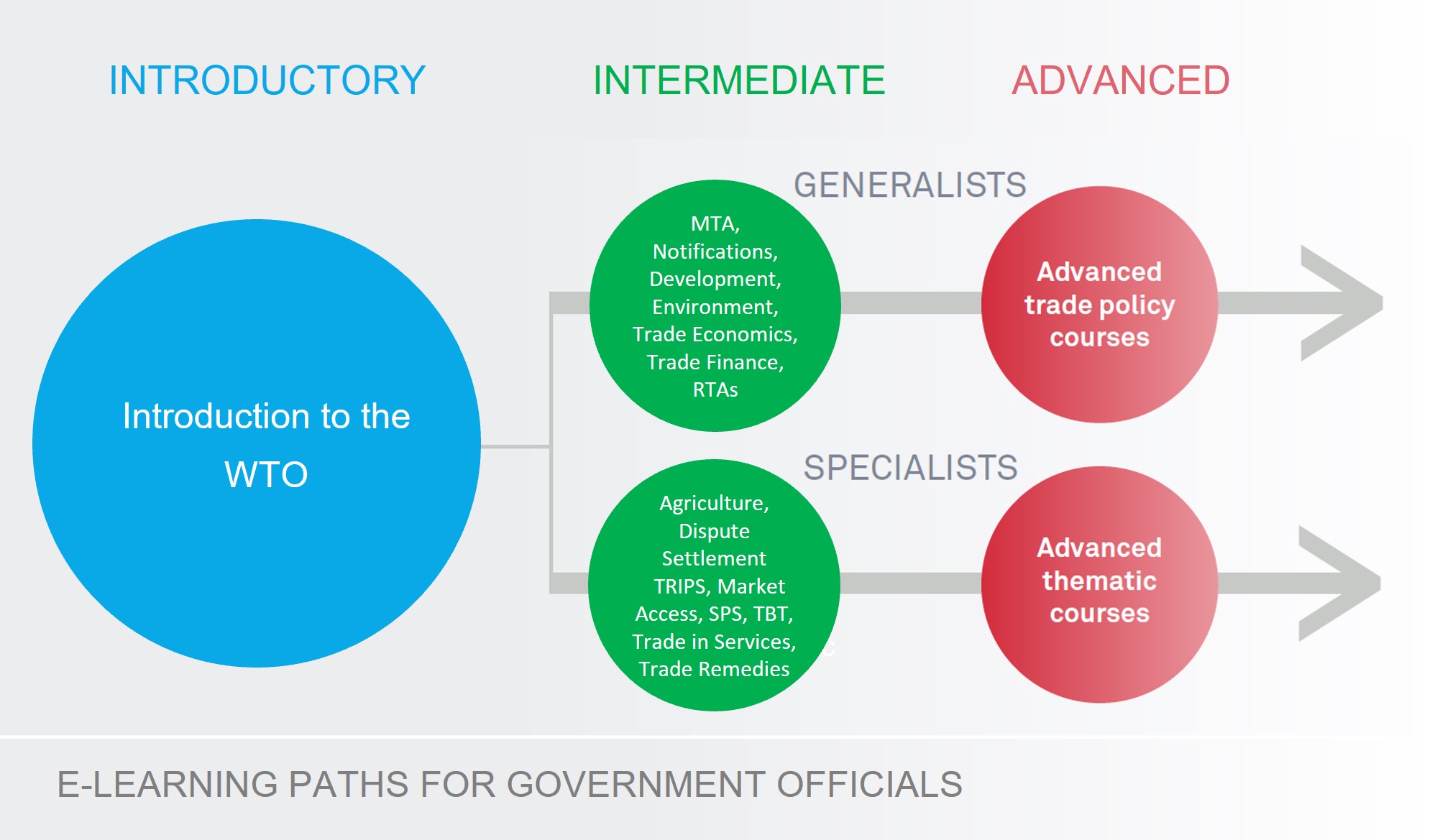WTO e-Learning Platform
About Us
WTO e-Learning is part of the WTO technical assistance and training programme which aims to help developing countries build their trade-related capacity so that they can participate more effectively in global trade.
Our Audience
WTO e-Learning courses are primarily geared towards government officials from developing countries, least-developed countries, and countries in the process of joining the WTO. Our audience can also include representatives from civil society, journalists, academia, the private sector, and anyone interested in learning about the WTO and its Agreements.
Our Learning Strategy
Our e-Learning courses respond to the needs of our target audience in line with the WTO's Progressive Learning Strategy (PLS), which provides graduated levels of training to course participants along two broad learning paths:
- “Generalists” - government officials who need a broad knowledge of the WTO to conduct their work; and,
- "Specialists” - government officials who require in-depth knowledge on a specific trade topic.
e-Learning courses are offered at PLS Level 1 (basic) and PLS Level 2 (intermediate), both in the generalists and specialists learning path. Some e-Learning courses serve as prerequisites for WTO in-person training (e.g., the PLS L1 online Introduction to the WTO is a prerequisite for the in person PLS L2 Regional Trade Policy Course).
Types of access
Depending on the user's profile the WTO e-Learning portal grants two types of access rights to the e-Learning catalogue.
- Unrestricted access: is given to government officials who are the beneficiaries of WTO training and technical assistance who have been endorsed by their authorities. These users are guided in their learning path and have access to all training materials and activities and receive a WTO certificate upon successfully completing a course. This certificate also serves as proof of having obtained the required PLS level to unlock more advanced courses.
- Restricted access: is given to all other users allowing them to register on the e-Learning portal and enrol on a self-study basis to most of our training courses. These users are not guided in their learning path and do not have access to exams and certifications.
